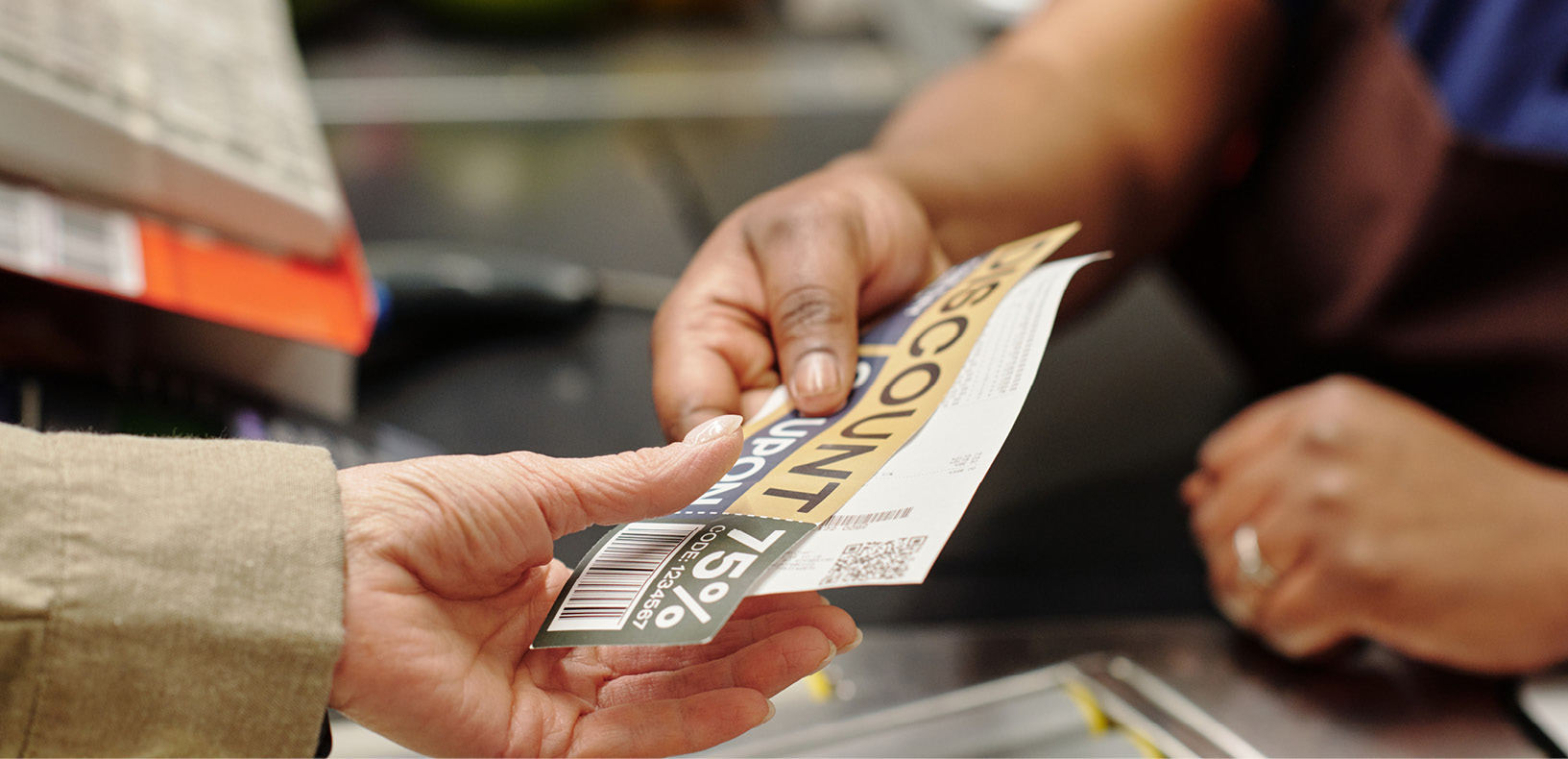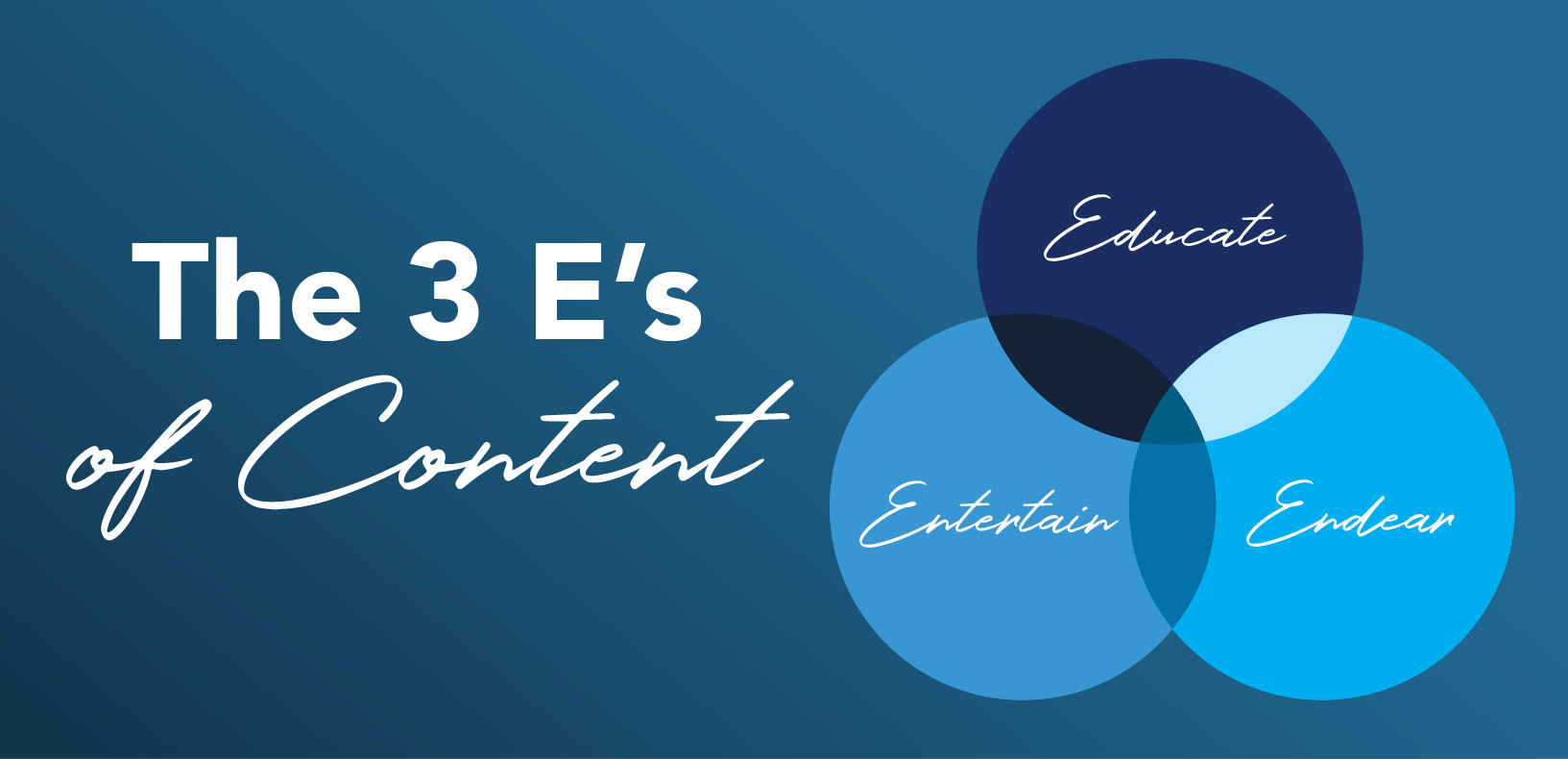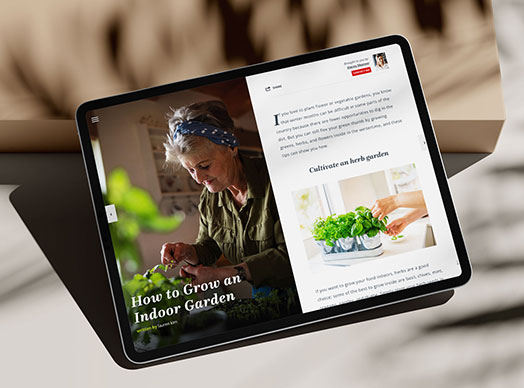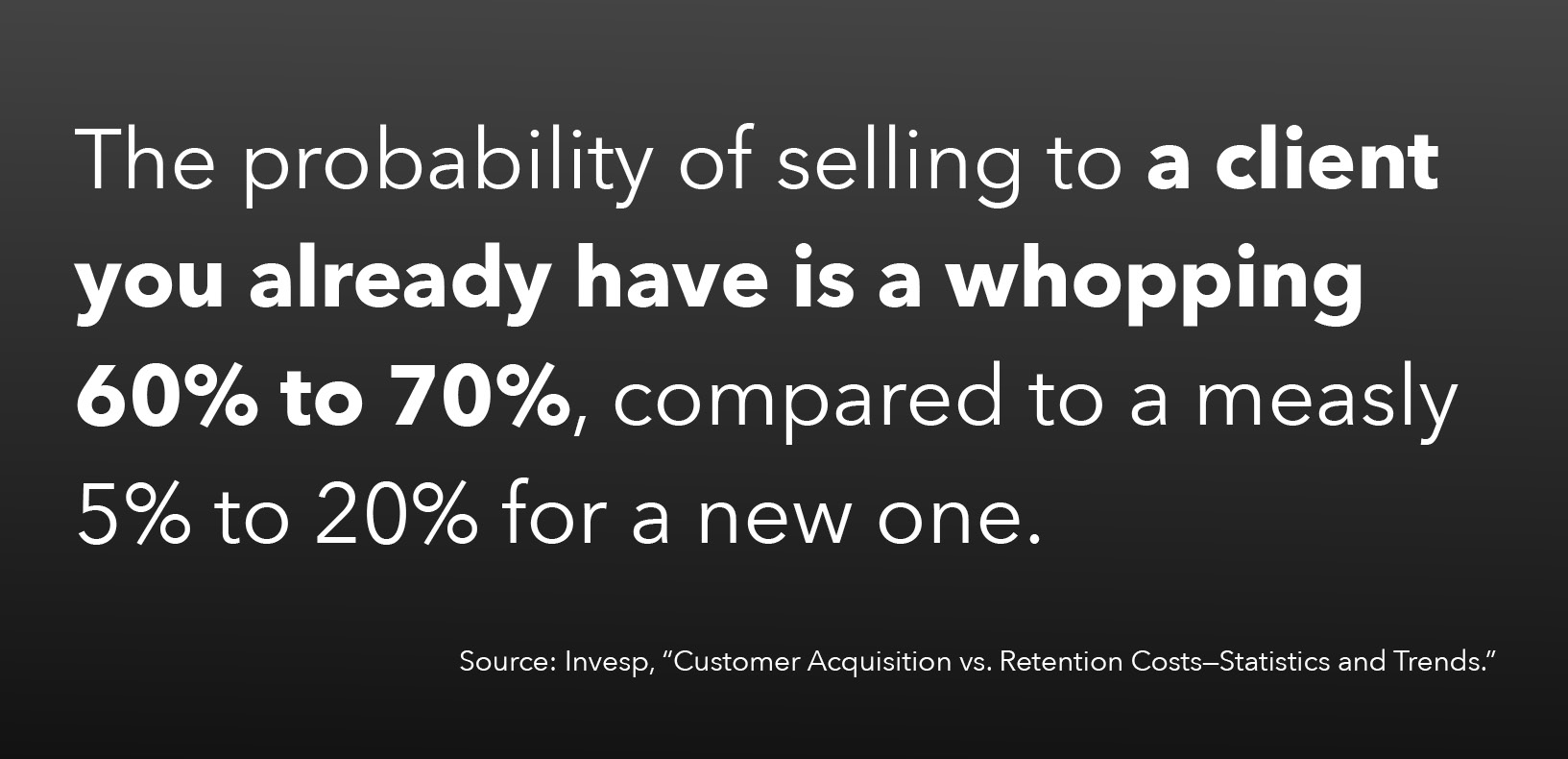Ask 10 people to name the best small business marketing strategy, and you’ll likely to get 11 different answers. (There’s always one who can’t decide between their options.) Among these many possibilities, it can be a real challenge knowing which to invest your limited resources in. If only there was one you could be certain warranted your complete confidence—one that was backed by the undeniable force of science and leveraged formidable psychological principles to win lifelong clients and a steady stream of referrals.
The decision would be a no-brainer, right?
Well, you’re in luck! Such a strategy not only exists but also is cost-effective, offering a high return on investment compared to traditional methods. But here’s the disclaimer: while it’s something that all small business owners could benefit from, it requires a commitment not to immediate gain but rather to steady, ongoing growth.
The best small business marketing strategy for the long term
Since the goal of marketing is to drive sales, it’s no surprise that so many brands focus all their efforts on individual transactions. For small businesses such as car washes, laundromats, and fast-food franchises this attention to sales makes sense—they sell large volumes of a commodity, need to constantly find new customers, and rely on pricing, discounts, and incentives to lure those customers. But for others, this approach is simply a bad idea.

If you’re selling commodities requiring large volumes of sales, then discounts and incentives work well. But if you’re a service professional, then forming long-term relationships that hold the promise of future referrals is your best bet.
If you’re a real estate agent, lawyer, accountant, health-care provider, financial advisor, or other service-based professional, devoting all your energy to simply closing the next deal, signing the next agreement, or getting the next payment means that you’re failing to make a real connection with the people you’re selling to. In other words, you’re sacrificing long-term relationships for quick wins, and at the end of the day, that will force you to spend a lot more time and money chasing new leads—condemning you to what we call the “hamster wheel of business.”
Rather, the best marketing strategy for you is relationship marketing.

When you prioritize the quick sale over long-term relationships, you’ll find yourself spending more time and money constantly chasing new leads.
Instead of prioritizing the sale, relationship marketing gives precedence to—you guessed it—the relationship you build with your clients. This strategy makes communication a two-way street, directing your focus to actively seeking client feedback, building rapport, and personalizing the client experience. Clients of relationship-based businesses are faithful, serve as brand advocates, and offer the promise of a high lifetime value. Relationship marketing is perfect for those who provide professional services or experiences (like those listed above) and who can benefit from more frequent, authentic, and in-depth interactions with their clients.
Of course, this strategy requires a not-so-insignificant amount of time and effort as well as the temperament and fortitude to build and consistently nurture your client relationships. But it can be the remedy to chasing leads and seeing little return on a lot of investment, leading to potentially spectacular results:
- An Invesp study found that the probability of selling to a client you already have is a whopping 60% to 70%, compared to a measly 5% to 20% for a new one. Reflect on your own experiences, and you’ll quickly agree that people will generally do business with someone who either they already know and trust or comes with a high recommendation than be persuaded by a self-interested, company-sponsored ad.
- Retained clients have a significant impact on profits because they tend to spend more over time and require less investment to keep than what is required to win new ones. For example, in a dated but still relevant and often quoted article, Bain & Company noted that in financial services, “a 5% increase in client retention produces more than a 25% increase in profit.”
- Satisfied clients reward businesses with positive word of mouth and lucrative referrals who, in turn, continue to grow your bottom line. According to Annex Cloud, a referred client has a 37% higher retention rate than one acquired by other means, is four times more likely to refer more customers, and spends 200% more than the average customer.
The fundamentals of relationship marketing
In the spirit of full transparency, we’re a 20-year-old company that specializes in relationship marketing, so we’re naturally pretty gung-ho about it. (Below, you’ll read about how our services and products can help make nurturing your client relationships super easy.) But as I said above, this type of marketing isn’t a quick or simple set-it-and-forget-it approach. Here’s what it takes to sustain this type of strategy.
You must be authentic
Deemed Merriam-Webster’s Word of the Year for 2023, authentic has unfortunately become a cliché—reduced to a trivial buzzword—when, in fact, authenticity is the bedrock of professional service relationships.

When you are authentic, your clients and prospects will feel confident that their needs are being understood and prioritized.
To be authentic means putting aside false pretenses and personas to let your personality shine through, within the bounds of prudent judgment and discretion. When you do, you become better able to create the long-lasting associations that referral marketing aims to build.
First, a genuine demeanor builds trust. People can easily detect inauthenticity; they’ll know if you sincerely care about their success or are just interested in making a quick buck. When you’re true to yourself, they’ll believe that what you say and do reflects how you really think and feel. Be authentic, and your clients and prospects will feel confident that their needs are being understood and prioritized.
Second, authenticity fosters open communication. Transparency encourages transparency—it’ll be easier for clients to be “real” with you if you are up front with them. Be honest about your capabilities and limitations, don’t overpromise or make guarantees you can’t keep, and welcome honest feedback. The more comfortable you can make your clients feel opening up, the more relevant and effective guidance you can provide them.

The key term in relationship marketing is “relationship.” Be yourself, and you’ll encourage your clients to open up and trust you.
Finally, authenticity allows for a more collaborative approach. Being authentic allows you to admit when you don’t have all the answers, which can foster a teamwork mentality with your clients. This shared journey toward achieving their goals will strengthen your relationships and lead to more satisfying outcomes for all.
You must be consistent
Imagine you meet someone and develop a romantic interest in them. Optimistic, you suggest grabbing a coffee. The date goes swimmingly well, so before parting ways, you ask them to marry you. Now picture them running at top speed in the opposite direction while calling 911.
It’s an exaggerated scenario to be sure, but you’d be surprised by the number of business owners who essentially do this with their clients—they behave as if one good interaction means a client is willing to make a lifetime commitment.
The simple fact is that to build solid relationships with your clients and prospects, you must maintain frequent and regular contact with them.

Stephen Acree is the top agent in Lynchburg, VA, because of hard work and strategic client relationship building techniques. Download this free PDF and see exactly what he does for his client outreach.
Do you really want to depend on a client keeping your business card for years? Are you certain that they’ll remember your phone number when they lose their phone? And if it’s been a while since you’ve connected, how sure are you that they’ll even recall your name?
Without routine touchpoints, clients will forget you, and prospects . . . well, they’ll simply skip the date entirely, opting to brew a cup of instant coffee at home instead.
It’s also essential to reach out to your sphere in multiple ways.
When you routinely appear in your clients’ and prospects’ mailboxes, inboxes, social media feeds, and smartphones—when you become omnipresent—you become embedded in their consciousness. (This is what being top of mind means.) But beyond simply keeping you in front of your sphere, maintaining a cadence of regular touchpoints allows you to both have more nurturing conversations with the clients you already have and build the trust and rapport needed to successfully court and convert prospects.
You must deliver value
Gary Vaynerchuk (a.k.a. Gary Vee), a social media expert, author, speaker, and entrepreneur, has based his entire approach to business on providing value to clients before asking for a sale. He calls it “jab, jab, jab, right hook,” and he’s written a book by the same name [#ad]. But exactly what does providing value mean?

Using the 80/20 rule, the majority of your content should be educational, entertaining, and endearing.
One self-proclaimed Gary Vee disciple suggests that value is anything that will make your client smarter (education) or laugh (entertainment). To that, I would add actions that encourage your audience to admire you (endearment). These three E’s—education, entertainment, and endearment—can be delivered in any number of ways, so pick the one or two that works for you. You can:
- Write blogs that share timely and relevant information and opinions, or produce an email newsletter that does the same.
- Post polls, memes, green-screen videos, and other appealing content, and interact with your audience on social media.
- Encourage feedback to make clients feel that their opinions matter. Implement appropriate improvements, and thank your clients for their suggestions.
- Following relevant laws, regulations, and rules pertaining to your industry, create a loyalty program or other rewarding incentives.
- Host client events. We’ve had a number of top producers and entrepreneurs as guests on our Stay Paid podcast who’ve told us that client events are among their top lead-generating activities, resulting in repeat business and referrals that they otherwise would not have received.
- Segment your campaigns based on clients’ behaviors, interests, and needs so they get what they value most.
- Give gifts when appropriate. Real estate agents traditionally do so at a closing, while financial professionals might do so during the holidays. (To understand the power of gifts, check out our interview with John Ruhlin, author of Giftology: The Art and Science of Using Gifts to Cut Through the Noise, Increase Referrals, and Strengthen Client Retention.)

Listen to John Ruhlin describe the power of giving gifts to your clients, and its ability to ensure long-lasting relationships that produce repeat and referred business.
You must be patient
A key aspect of the previous point is that you need to give value freely, often, and, most importantly, without the expectation that you’ll convert a sale.
That’s right. No matter what you give or how often, you aren’t entitled to a sale, repeat business, or referrals. Gary drives this point home in an article written three years after the release of his book (apparently, readers weren’t getting the point):
Putting out great content, sending baskets of fruit, whatever your jab is, it doesn’t entitle you to land the right hook. It just allows you to have the audacity to ask. You have to earn the right to ask people for a sale. In fact, you have to earn the right to ask people for anything. That’s just life. You can’t have the expectation that they will convert.
Building relationships and earning the right to ask for the sale takes time, and that can be a hurdle for small business owners, especially those relying on commissions. It’s tempting to abandon relationship marketing when immediate results aren’t there. However, by sticking with a well-defined plan that emphasizes the three factors mentioned above, you can cultivate a loyal client base. This translates to repeat business and referrals, setting you apart from less committed competitors.

Relationship marketing requires patience, and while it’s tempting to abandon it when immediate results aren’t there, stick with it. The payoff is worth it.
Remember, economic cycles are inevitable. Even during downturns, if you continue to nurture your relationships and focus on the long term, you’ll be well positioned to thrive when the market rebounds. By investing in relationships now, you’ll be in a prime spot to capture a larger market share later.
How we can help
If you agree that relationship marketing is, in fact, the best small business marketing strategy but feel overwhelmed at the thought of regularly producing valuable content and delivering it in multiple ways, we can help. In fact, we can do just about everything for you with only a minimal need for you to take time away from your busy schedule.

Click here, and get your free PDF sample of our most recent issue.
As I noted previously, we have 20 years of experience in the business of relationship marketing, helping more than 100,000 clients nurture relationships with their spheres so they retain more business, garner more referrals, and close more deals. We help our clients achieve these results by keeping them in front of their audiences across multiple channels, delivering only the highest quality content that we personally brand to each one. We firmly believe we have the world’s best marketing (that’s not hubris, simply justified confidence), and I’m inviting you to check us out.

Personalize the inside front cover with a letter you can customize down to the individual recipient for FREE! Plus, choose from hundreds of Tear Out Cards. Each issue includes two.
Request a free sample copy of our personally branded magazines to see if they aren’t the most impressive customizable publications available. We brand it in six key spots and automatically deliver a new issue to your list of recipients every two months.
If you decide to become a client, we’ll include 30 days of free access to our Digital Marketing Platform. With it, you can set up an entire year’s worth of professionally written social media posts in just three clicks.
We’ll also automatically send to your sphere a biweekly email newsletter featuring top-quality, hand-curated events in your local area, a biweekly newsletter of expertly crafted branded posts, and a monthly digital magazine bursting with unique content. And no matter how many times your content is shared or forwarded, your branding stays intact, exposing your business to a potentially limitless audience.
Finally, you’ll receive a free landing page and free prewritten lead magnets tailored to your industry to effortlessly capture new leads.

Become a ReminderMedia magazine client, and we’ll give you 30 days of our Digital Marketing Platform FREE! Click here to learn more.
Tally it all up, and that’s a significant number of consistently delivered, high-quality, high-value client touchpoints. And we do it all for you—the writing, designing, posting, and mailing. Nothing could be easier or more affordable because we do everything in-house. Add a weekly follow-up from you and a quarterly client event, and you’ll connect with your sphere 200+ times a year!
There’s no reason to wait. Request your free sample copy of our most recent magazine issue, and we’ll immediately send it to your inbox.
We are a participant in the Amazon Services LLC Associates Program, an advertising program designed to provide a means for ReminderMedia to earn a small fee by linking to Amazon.com and affiliated sites.

























